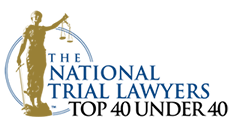Time Limitations For Claims
There are time limitations requiring actions to be taken within a certain period of the claim that is waived and lost. The actions may require that a formal notice of claim be served within the short period of six months from the injury or the act of formally filing a lawsuit in court. What is contained herein is intended as a very general description of time limits applicable to different claims. It is not intended and should not be interpreted as an answer to the effective time limit for a specific case. The general time limits described have exceptions to their application under different facts. Because of this, while the time limitations described herein may provide a basic outline of such limitations, you should seek advice from an experienced attorney to address your particular factual situation.
182 Days’ Written Notice Requirement
If your injury claim is against a public entity [C.R.Ss. 24-10-103(5)] or an employee of such entity, then you must prepare and serve a written notice of claim. The content of the notice, the manner of service of the notice and the time limit are set forth in Colorado Statute 25-10-109. If such notice is not served as required, the claim will be lost unless an available exception exists. Such exceptions may be applicable, such as legal disability as provided by Statute 13-81-103. This may include a claim by a minor or by a person suffering from some other legal disability.
Public entity includes virtually all governmental entities – state, county and local. It includes state educational institutions – including hospitals and agencies, such as Regional Transportation District (RTD) – or any employee of a governmental agency. Some hospitals in Colorado are considered public entities, and some apparent private hospitals are associating with the University of Colorado Hospital for the protection afforded them by being considered part of a public entity.
Death Claim
The statute of limitations for a claim for wrongful death is two years from the date of death, 13-21-204. This time limitation is applicable regardless of the type of event causing the death (i.e., motor vehicle, medical malpractice, etc.). The requirement for a written notice within 182 days is applicable if the claim is against a public entity or employee.
Motor Vehicle Accident Injury
The statute of limitations for a motor vehicle accident is three years, 13-80-101. The requirement of a written notice of claim is also applicable if a public entity or employee is the wrongdoer. The three-year statute of limitations requires that the claim be filed in court within that time period or the claim is lost. As a general rule, the three-year period begins on the date of the event causing the injury. There are factors that, if applicable, may cause the three-year period to commence at a date later than the event, such as legal disability, 13-81-103. An example of such legal disability is age minority (i.e., the three-year period not running against an individual under the age of 18).
Medical Negligence Injury
The statute of limitations in Colorado for a claim against a health care professional or institution is two years, 13-80-102.5. This requires the claim be filed in court within that time period. When this two-year time limit begins depends on what the claimant knew or should have known concerning the cause and nature of the injury. Colorado Statute 13-80-108 defines what is required in such knowledge to start the two-year period. However, regardless of what the victim of medical negligence knew, there is a maximum of three years following the negligent event to file the claim in court.
The written notice of claim within the 182 days’ requirement is applicable to a claim for medical negligence. Some hospitals or clinics are governmental and, therefore, public entities requiring such notice. A website that may be consulted in an attempt to determine if the hospital or clinic is a public entity. Some private hospitals in Colorado are entering into associations with the University of Colorado Hospital in order to obtain the protections afforded to a public entity. A physician committing medical negligence within a hospital or clinic considered to be a public entity or committing medical negligence while they’re an employee of a public entity such as the University of Colorado is protected even if the negligence is committed outside the public entity and the written notice is required. Under Colorado law, a hospital is not responsible for the medical negligence of a physician even if the physician is an employee or if the negligence occurs in the hospital. However, the physician who commits negligence while in the public entity hospital or who is an employee of such public entity is still protected, and the written notice should be directed to the physician.
A hospital, clinic or medical practice is liable for nursing negligence or negligence of nonphysician employees. This is true for a public entity hospital or clinic also so the written notice is served on the public entity.
Commercial/Social Providing Alcohol
A claim may be brought against a person or entity that is licensed to serve alcoholic beverages if such service was willfully and knowingly provided to a person under the age of 21 or a person visibly intoxicated. The person served may not bring a claim, but someone injured or the family of one killed as a result of the intoxication of such person can bring the claim. Such a claim may also be brought against a social host who, knowingly, serves alcoholic beverage to one under the age of 21 or who provides a place for one under 21 to consume such alcoholic beverage. Such action must be commenced within one year of the sale/service that led to the intoxication.
Other Injury Events
Injuries from events other than motor vehicle or medical negligence generally have a two-year applicable statute of limitations. This includes such events as injury resulting from conditions on another’s property such as a fall, injuries caused by a defective product, an injury from a ski accident and other events. The requirement of the written notice of claim is applicable to these claims as well when a public entity is at fault.







